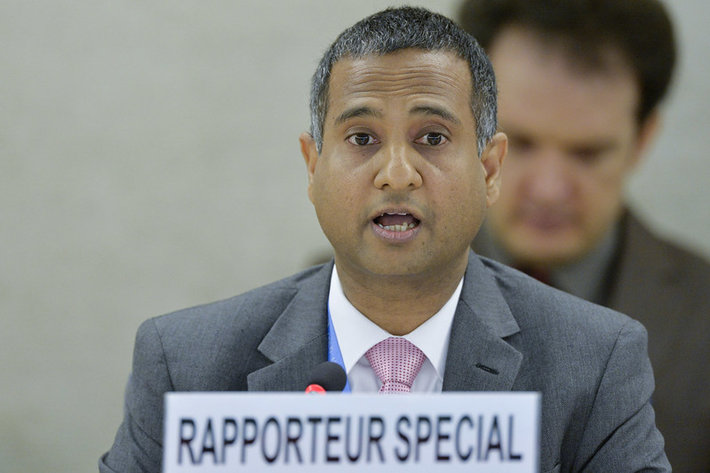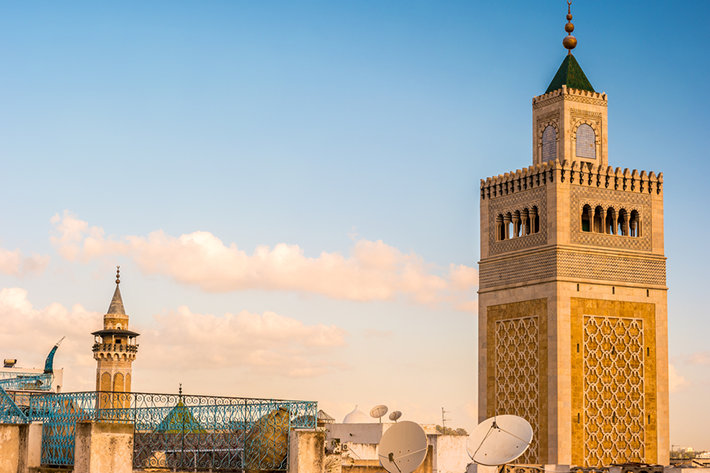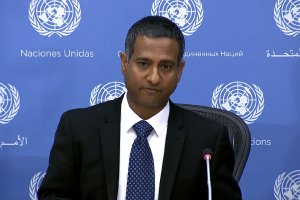U.N. Special Rapporteur on Freedom of Religion or Belief Ahmed Shaheed submitted a report March 2 alerting the United Nations Human Rights Council to increased risk to Bahá’ís living in Iran, Yemen, Tunisia and Qatar. Bahá’í is not legally recognized as a religion in these countries, rendering adherents vulnerable to basic human rights abuses by state authorities.

The Bahá’í faith was established in 19th-century Persia. The Shi'ite branch of the Muslim faith—the predominant branch of Islam in Iran—considers the founder of Bahá’í and his followers apostates.
Shaheed’s report, “Rights of Persons Belonging to Religious or Belief Minorities in Situations of Conflict or Insecurity,” includes an annex on the plight of Bahá’ís: “Experiences of Persons Belonging to the Bahá’í Minority Community in Conditions of Increasing Insecurity.”
The report cites “The Bahá’í Question,” a document issued in 1991 by the Supreme Revolutionary Cultural Council of the Islamic Republic of Iran, that continues to shape systematic persecution of adherents.
Although it specifies that Bahá’ís should not be expelled from Iran or arrested, imprisoned, or penalized without reason, it emphasizes “government’s dealings with them must be in such a way that their progress and development are blocked.”
It further states that members of the faith “must be expelled from universities, either in the admission process or during the course of their studies, once it becomes known that they are Bahá’ís,” and “A plan must be devised to confront and destroy their cultural roots outside the country.”
Rasheed’s report states that Bahá’ís in Iran have been subjected to “smear campaigns and speech that may incite violence against them based on their faith identity.” And “Influential figures, including clerics, religious figures, academics, editors, and government representatives have publicly issued speeches, articles, or written declarations against the Bahá’ís to delegitimize and denigrate the community.”
In Yemen, the report states, the leader of the dominant Houthi community denounced Bahá’ís in a televised 2013 speech where he urged his followers to “engage in violence against them, in purportedly ‘defending’ their country from Baha'is and other religious minorities.” Bahá’ís have been accused of being spies for Israel, further exposing them to harm. The instigation of violence has been “reiterated by several Yemeni news sites and is ongoing.” Leaders “also have called for the arrest of Baha'is based on their faith identity, with some already convicted, others deported, their gatherings raided, institutions banned, and attempts underway in the courts to seize their properties.”
The report recounts the fate of a Bahá’í in Yemen who was coerced into exile by being forced to choose between going to prison indefinitely or leaving the country for good.
Bahá’ís face stiff financial discrimination as well, with banks forbidden from providing them loans. Authorities have seized Bahá’í businesses and properties, and employers are intimidated for hiring members of the minority community.
In Qatar, a number of Bahá’ís, including long-standing residents, have faced administrative deportations and others have been blacklisted, losing jobs, income and contact with families. Qatar’s Bahá’í community also has been balked by restrictions and administrative delays in their efforts to re-establish a Bahá'í cemetery on a plot of new land. “Policies that interfere with burial rites and rituals may infringe on the freedom to manifest one’s faith,” said Shaheed.
In Tunisia, the government has blocked efforts by the Bahá’í community to register the “Bahá’í Association of Tunisia,” an organization that would help Bahá’ís gain legal recognition and facilitate their aim of promoting interfaith dialogue and exchange with members of other religions in the country.
According to the Bahá’í International Community (BIC), a nonprofit organization that represents members of the faith and works to protect their rights, the U.N. Special Rapporteur’s annex is the first document to selectively focus on the plight of Bahá’ís in a range of countries.
Bani Dugal, the BIC’s principal representative to the U.N., said in a March 11 article on the organization’s website, that they hope Rasheed’s report will “inform the actions of Human Rights Council members and remind the authorities that the world is watching.”
_______________
From its beginnings, the Church of Scientology has recognized that freedom of religion is a fundamental human right. In a world where conflicts are often traceable to intolerance of others’ religious beliefs and practices, the Church has, for more than 50 years, made the preservation of religious liberty an overriding concern.
The Church publishes this blog to help create a better understanding of the freedom of religion and belief and provide news on religious freedom and issues affecting this freedom around the world.
The Founder of the Scientology religion is L. Ron Hubbard and Mr. David Miscavige is the religion’s ecclesiastical leader.
For more information visit the Scientology website or Scientology Network.


